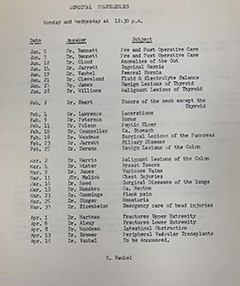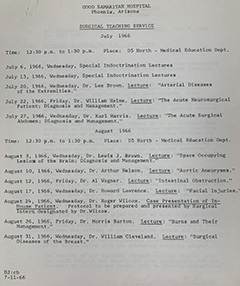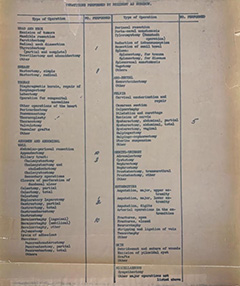In This Section
-
About
- Mission
-
Leadership
-
Departments
- Anesthesiology
- Basic Medical Sciences
- Bioethics and Medical Humanism
- Biomedical Informatics
- Child Health
- Dermatology
- Emergency Medicine
- Family, Community and Preventive Medicine
- Internal Medicine
- Neurology
- Neurosurgery at Banner
- Neurosurgery at Barrow
- Obstetrics & Gynecology
- Ophthalmology
- Orthopaedic Surgery
- Pathology
- Psychiatry
- Radiology
- Surgery
- Translational Neurosciences
-
Faculty
-
Office of Health Care Advancement
-
The College at a Glance
-
Accreditation
-
Events & Ceremonies
-
Strategic Plan
- 2024–2025 Annual Report
-
Research
-
Community
-
Prospective Students
-
Current Learners
- Student Portal
-
Student Services
-
Student Affairs
- Learning Environment Office
- Current Residents and Fellows
- Advising
-
Campus-wide Services
-
Financial Aid
- Student Development
-
AΩA Chapter
- Center for Simulation and Innovation
- Alumni & Friends
-
Health and Wellness
- FAQ's
-
Student Milestones
-
Pathway Scholars Program
- Phoenix Med Connect
-
Residencies & Fellowships
-
Residency Programs
-
Fellowship Programs
- Addiction Medicine
- Advanced Heart Failure and Transplant Cardiology
- Advanced Endoscopy
- Aerospace Medicine and Surgery
- Cardiovascular Diseases
- Cardiac Electrophysiology
- Child and Adolescent Psychiatry
- Clinical Informatics
- Critical Care Medicine
- Community Medicine
- Endocrinology, Diabetes and Metabolism
- Maternal Child Health (OB Fellowship)
- Female Sexual Medicine
- Forensic Pathology
- Gastroenterology
- Geriatric Medicine
- Geriatric Psychiatry
- Hand Surgery
- Hematology and Oncology
- Headache Medicine
- Hospice and Palliative
- Infectious Diseases
- Interventional Cardiology
- Maternal-Fetal Medicine
- Medical Toxicology
- Minimally Invasive Gynecologic Surgery
- Orthopaedic Sports Medicine
- Primary Care Sports Medicine
- Pulmonary and Critical Care Medicine
- Surgical Critical Care
- Surgical Oncology
- Sleep Medicine
- Structural Heart Disease
- Transplant Hepatology
- Vascular Neurology
-
Current Resident/Fellow Resources
-
Orientation Information
- Outgoing Resident/Fellow Resources
-
Program Leadership Resources
- GME Office
- Training Verification
-
Provide Feedback
- Visiting Residents
- Policies
- Cheryl O'Malley, MD
-
Residency Programs
-
Giving
-
Contact
Education
Surgery rounds used to include a one-hour midday conference, followed by rounding in-person on the patients who were presented and discussed in conference. Typically, this presentation would be of an interesting surgical or clinic patient. If none was available that week, then a common surgical patient presentation was discussed in detail. Subspecialties covered included obstetrics and gynecology, pediatrics, radiology, cardiology, general surgery, plastic proctology, ENT, urology, thoracic surgery, cardiovascular surgery, orthopedic surgery, anesthesia, medicine and pathology. There was also a Journal Club. Three hours of outpatient clinic was expected per week. It was also noted on their contracts that the residents were expected to teach interns and student nurses rotating through the services.
Operative Logs
From the surgical case logs, you can see the breadth of general surgery procedures available. The older case logs from 1958 show the cases done by a single resident.
Click to Enlarge


